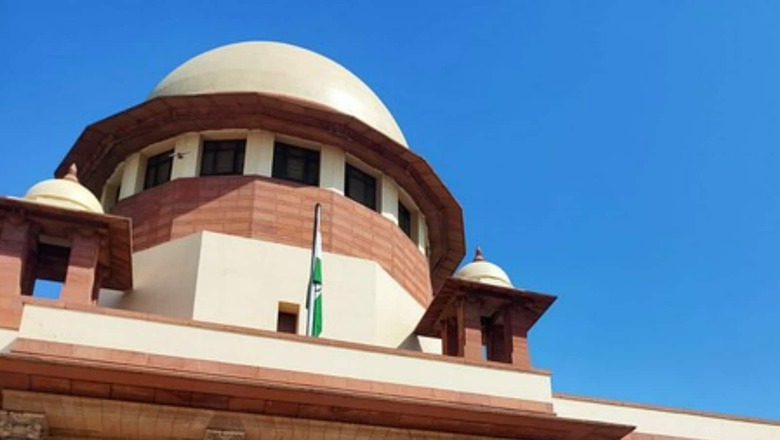
views
The Supreme Court recently held that a long-standing pre-existing dispute would not be enough to cause “sudden” provocation to an accused.
The court noted that the accused in the instant case, living in the property adjacent to the victim, had climbed the wall, entered the deceased’s house, and attacked him with axes.
“These facts do not constitute a ‘sudden quarrel’, given that the appellants abused the deceased, in an unprovoked manner, and then they went to where he was, armed with axes, and assaulted him,” the court noted.
The SC said that even if the facts were assumed to disclose that there was a sudden fight, it cannot be said that the accused failed to act in a cruel manner, or did not take undue advantage, because they were armed: a fact which showed pre-meditation on their part and they both attacked the victim on the head, which is a vital part of the body, thus taking undue advantage of their situation.
In the case, it was also established that when the deceased was levelling a septic tank on his property, the accused had started abusing him, and when he asked them not to, they came over with axes.
These observations were made by a bench of Justices Krishna Murari and S Ravindra Bhat while upholding the conviction of the accused before it and sentence of life imprisonment, for the offence of murder, and six months rigorous imprisonment for the offence under Section 323 of IPC.
The top court considered whether the injury caused due to the attack was one which falls within the description of Section 300 [3] (“If it is done with the intention of causing bodily injury to any person and the bodily injury intended to be inflicted is sufficient in the ordinary course of nature to cause death”) or if it falls within the mischief of Section 300 [4] (“If the person committing the act knows that it is so imminently dangerous that it must, in all probability, cause death or such bodily injury as is likely to cause death, and commits such act without any excuse for incurring the risk of causing death or such injury as aforesaid”).
“…what is evident is that while there were pre-existing disputes of some vintage, between the appellants and the deceased, there is nothing to show that they had been aggravated. It is also, likewise, not clear whether the deceased said anything to the appellants which triggered their ire, leading to loss of self-control as to result in ‘grave and sudden provocation’. In any case, if there were something, the appellants ought to have brought the relevant material or evidence on record, as what facts did exist, was within their peculiar knowledge…” the court held, while dismissing the appeal.
Read all the Latest India News here




















Comments
0 comment